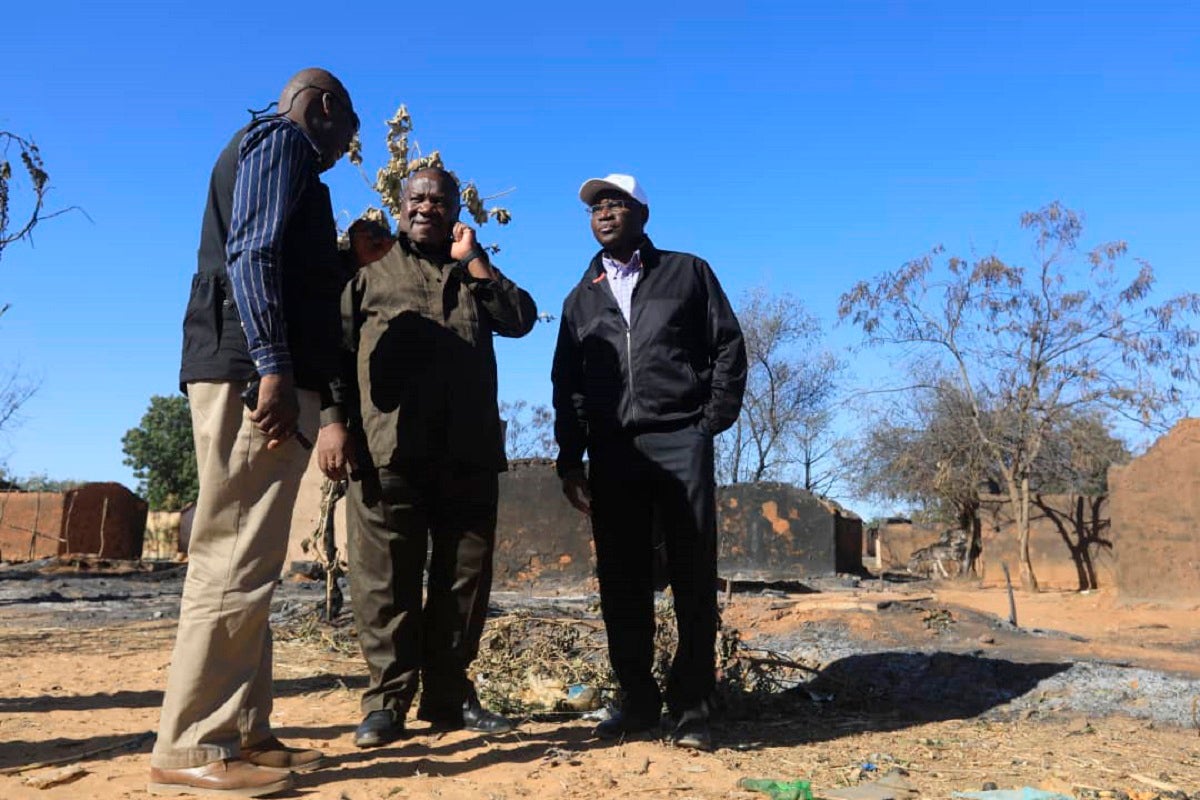UN-African Union envoy says mistrust deep in Sudan’s Darfur
The joint U.N.-African Union envoy for Darfur is cautioning that mistrust still runs deep in Sudan's troubled region and urged the transitional government in Khartoum to embark on the “huge task" of gaining the trust of the local people

The joint U.N.-African Union envoy for Darfur cautioned on Wednesday that mistrust still runs deep in Sudan’s troubled region and urged the transitional government in Khartoum to embark on the “huge task” of gaining the trust of the local people.
Jeremiah Mamabolo's remarks came as U.N. Security Council members remained divided on the timing to end the mandate of the joint mission, known as UNAMID.
The people of Darfur “have been betrayed ... A lot of crimes and injustice have been committed against them, so they feel insecure,” Mamabolo told The Associated Press. “It’s a delicate situation."
Sudan is on a fragile path to democracy after a popular uprising led the military to overthrow autocratic President Omar al-Bashir in April 2019, after nearly three decades of rule. Since then, the country has been led by a joint military-civilian government, which has been struggling to end Sudan's decades-long civil wars and overcome the country's dire economic conditions.
The International Criminal Court has charged al-Bashir with war crimes and genocide over the conflict in Darfur. The transitional authorities initially balked at handing over those wanted by the ICC but later — without mentioning al-Bashir specifically — said they would be handed over to face justice in The Hague, Netherlands.
The mandate of UNAMID runs out at the end of the month. U.N. Security Council members on Tuesday affirmed their commitment to end the mission, but were divided on the timing, with Russia and African nations calling for a Dec. 31 termination while several Western nations urged more time before an exit.
The force, established in 2007, was the first joint U.N.-AU peacekeeping operation. It now has well over 6,000 military and police personnel and more than 1,500 civilian staffers. In June, the Security Council unanimously approved replacing it with a much smaller and only political mission, which will be known as United Nations Integrated Transition Assistance Mission in Sudan, or UNITAMS.
While the major fighting in Darfur has stopped, sporadic intercommunal clashes in the region have increased this year, Mamabolo said.
Hundreds of protesters, mostly displaced children and women, have set up a sit-in camp outside mission headquarters in South Darfur province to protest the looming end of UNAMID, with banners reading: “No for UNAMID exit from Darfur.”
Sudanese activist Nazek Awad said there are no provisions for an independent party to monitor the situation on the ground after the exit of U.N.-AU troops. “The insecurity for displaced people will continue and increase,” she said.
Mohammed Osman, a Sudan researcher at Human Rights Watch, said the group has documented an increase in intercommunal violence this year, exacerbated by the involvement of government forces, which led to the killing of dozens in recent months.
The Darfur conflict began in 2003 when ethnic Africans rebelled, accusing the Arab-dominated government in Khartoum of discrimination. The government was accused of retaliated by arming local nomadic Arab tribes and unleashing the militias known as janjaweed on civilians — a charge it denies.
Khartoum struck a peace deal with the Sudan Revolutionary Front, a coalition of several armed groups, earlier this year, and has stared deploying a 12,000-strong Civilian Protection Force to Darfur, according to the U.N. Other powerful armed groups, however, have thus far declined to join the deal.
Mamabolo hailed the accord as a beginning but warned that major challenges of security and the return of displaced people to their homes have yet to be resolved.
“We still have the people anxious," He said. “They are insecure.”
Bookmark popover
Removed from bookmarks